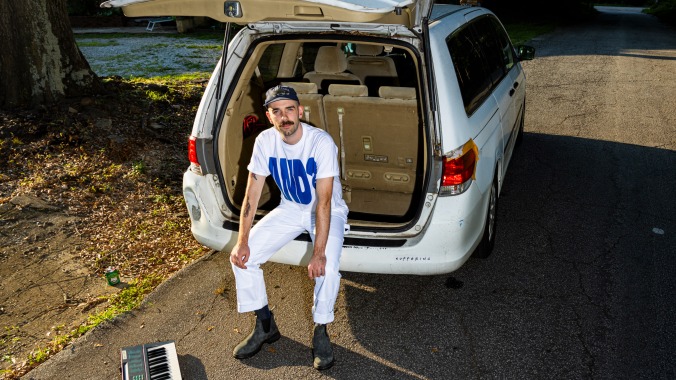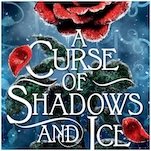Looking Straight At It: Sinai Vessel Sings Again
After 2020’s Ground Aswim, Caleb Cordes wasn’t certain what role—if any—music should have in his life. Four years later, his long-standing indie rock project is back with I SING, their finest, steadiest album to date.
Photo by Trent Wayne
It was Caleb Cordes’s first night off from tour. In October 2021, he was on drumming duties for Katy Kirby’s band, traveling across the East Coast as the openers for Waxahatchee. Four of the 10 shows during Cordes’s stint on drums were in New York City. But on the 14th, Cordes played a DIY show with Sinai Vessel, his emo-turned-indie-folk project, in a Lower East Side basement. In a practice space under a barbershop, Cordes borrowed a nylon guitar to showcase a handful of new songs he had written during the pandemic, mostly eschewing ones from Sinai Vessel’s 2020 triumph Ground Aswim. At the show, Cordes described one song as being about a “wealth gap relationship,” while another titled “Birthday” was a lovely, meandering story of the day that he turned 21. Almost three years later, those songs rest at the center of Sinai Vessel’s masterful fourth album I SING, where Cordes’s anxieties about his platonic, familial and romantic relationships, his economic standing and the value of being a musician today are translated into an overwhelming array of straightforward, funny and heart-wrenching songs.
Sinai Vessel is best described as whatever music Caleb Cordes is making, which means Sinai Vessel has worn many different hats. For a period of time, Sinai Vessel was a three-piece band, charging ahead with Cordes’s howled vocals, crunchy electric guitars and broad angst on 2017’s Brokenlegged. It was a critical breakthrough, so naturally Cordes disassembled the band, moved to Nashville in 2019 and decided to do a sonic 180. On 2020’s Ground Aswim, Sinai Vessel was reintroduced as an indie folk project that had more in common with the sparse narratives of Allegra Krieger than the dense emo of the Hotelier. “It’s always been whatever my impulse leads me to do,” explains Cordes. “Because that’s been the precedent, it’s hard for me to change it.” Cordes started Sinai Vessel at 16, and the project remains the direct extension of his musical whims and emotional insights.
I SING retains the stripped back sound of Ground Aswim, trafficking in plucked acoustic guitars, muted drum grooves and melodic, active basslines to support Cordes’s measured, clear lyricism. “I feel like this record is very much in the Ground Aswim universe and everything I make will be in that universe from this point forward,” he says. “Basically, I wanted to kind of do one better.” But I SING has a sharpness, seen most explicitly on the title-track’s mounting tension or “Country Mile,” which explodes with a snarling, upbeat guitar part to soundtrack Cordes’s frustration about centering your life around making music.
-

-

-

-

-

-

-

-

-

-

-

-

-

-

-

-

-

-

-

-

-

-

-

-

-

-

-

-

-

-

-

-

-

-

-

-

-

-

-

-








































